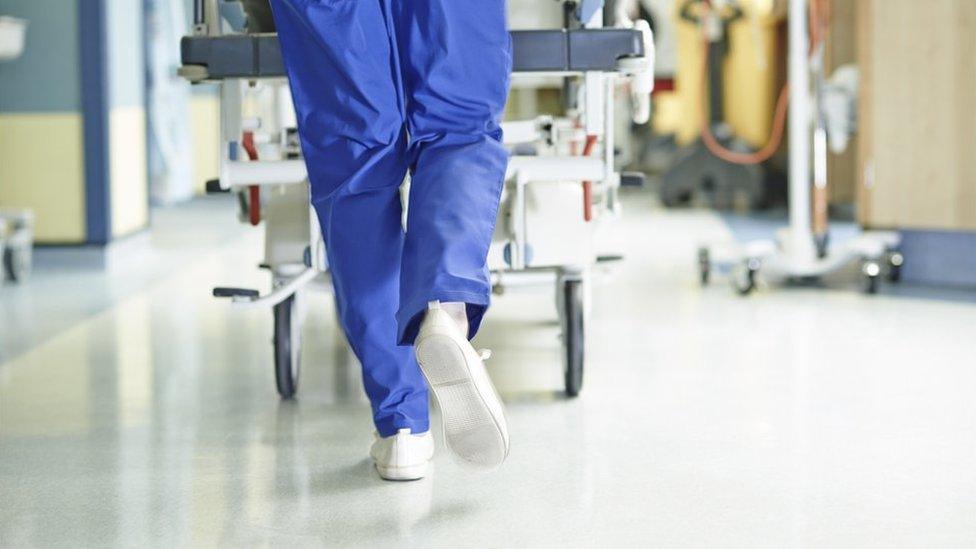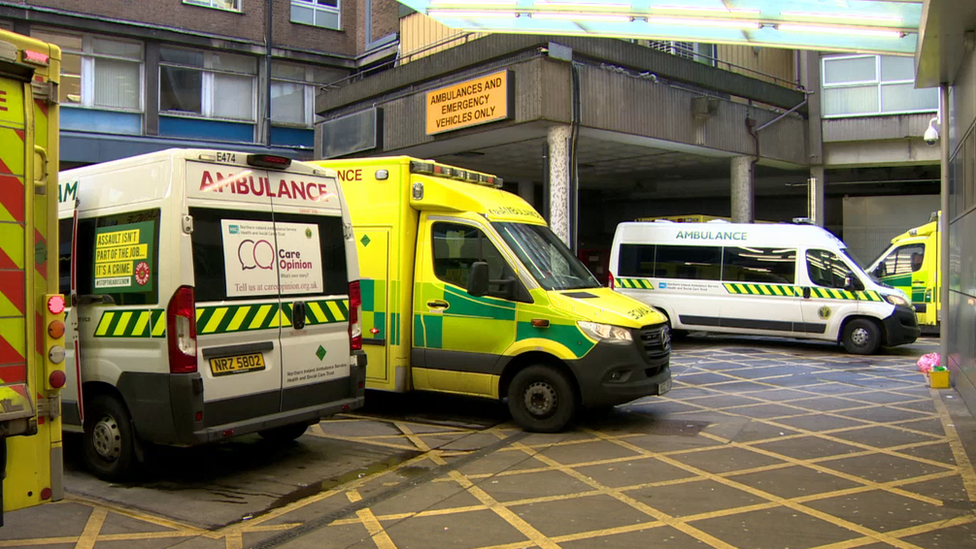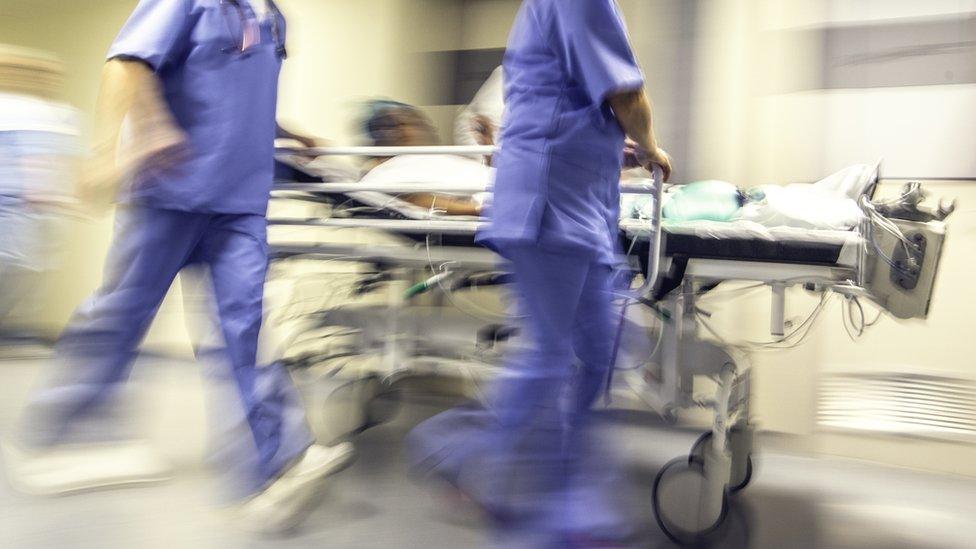Senior medics write to Chris Heaton-Harris over NI health crisis
- Published

Health leaders have written to the Secretary of State Chris Heaton-Harris asking for an urgent meeting over the health crisis in Northern Ireland.
In the letter the senior medics asked for a meeting "without delay".
They said this was due to the "continuing alarming situation, pressures on staff and consequences on patient care."
The letter said that the lack of functioning executive had caused "an impossible situation".
Recently, the health service has been described as being under unprecedented pressure.
Writing to Mr Heaton-Harris, the senior doctors and nurses said that they were seeing the dangers of "normalising the unacceptable".
'Worst waiting lists in the UK'
"It is now commonplace to see patients receiving corridor care," the letter said.
"Ambulances are regularly stacked up outside waiting to offload very sick patients.
"There are patients waiting with huge delays for care to start in crowded emergency dpartments.
They said that patients were being admitted for surgery that cannot be undertaken in routine circumstances anymore.
Children's services
Furthermore, prior to admission they have waited far too long, on what are labelled the worst waiting lists in the UK.
The letter went on to say that for children, the situation was "equally intolerable".

"Ambulances are regularly stacked up outside waiting to offload very sick patients," the letter said
The medics cited some waits of up to four years and more for elective care to begin.
The letter said paediatric services were dealing with "unprecedented numbers" coming to emergency departments (EDs) and through outpatient wait lists.
"These waits are unacceptable with significant life development milestones missed and life chances irrevocably affected if care isn't timely."
The senior medics said that nursing staff were "leaving in droves because of unsafe staffing levels".

The senior health leaders said they needed to speak up on behalf of their colleagues
They also raised concerns over general practice (GPs) saying that the service is at risk of "total collapse".
They wrote that there was no other political avenue but to ask for this meeting.
They said it was a "privileged job" and that they had to speak up on behalf of colleagues and patients.
The letter has been co-signed by the Northern Ireland leads for:
The Royal College of Surgeons
The Royal College of Emergency Medicine,
The Royal College of General Practitioners
The Royal College of Nursing
The Royal College of Physicians of Edinburgh
The Royal College of Anaesthetists
The Royal College of Paediatrics and Child Health
They also acknowledged the efforts of the Department of Health in "doing their best to make decisions whilst bearing in mind the accountability deficit and associated civil service limitations."
An NIO spokesperson said the pressures affecting NI's health services "demonstrate the pressing need to have locally accountable political leaders in place to take fundamental decisions on Northern Ireland's public services and deliver better outcomes for the people of Northern Ireland".
They said the secretary of state "receives a range of invites and requests for meetings, which are considered on a case by case basis" and that it would be inappropriate to comment on specific meeting requests.
While the health service is under pressure, the number of people awaiting admission to hospital from emergency departments across Northern Ireland has fallen.
Last week, there were around 370 people waiting each day for admission. Figures up to midday on Friday show that number has fallen to 198.
The total comes with a caveat that the situation in emergency departments is very fluid and can change quickly.

Analysis: Health service on the brink unites medical leaders
By Louise Cullen, BBC News NI
It is not the first time the colleges have united in this way but it is something they only do when the severity of the situation calls for it.
And while the current crisis has prompted the move now, the wider challenges confronting the health service are also highlighted.
From waiting lists to admission times, crowded emergency departments and staff burnout, this winter has brought health services in Northern Ireland to the very brink.
The fact that numbers awaiting admission to hospital from EDs have now almost halved shows just how hard the system is working to meet demand.
But that is just the tip of a vast iceberg of challenges that need coherent and decisive action to solve them.
Going to the top of the political tree is the medics' only option, with no minister to make decisions and no assembly to approve the large-scale interventions that are needed.

Related topics
- Published8 January 2023
